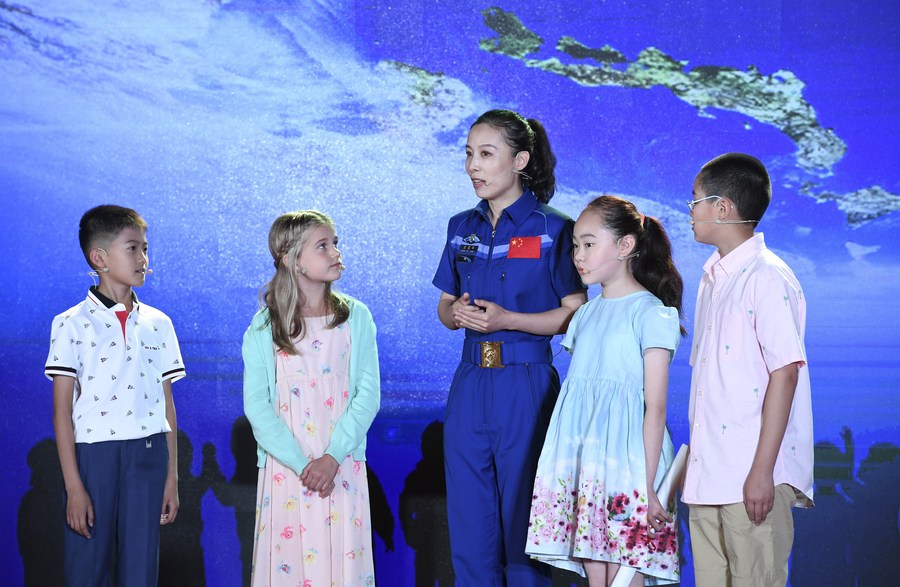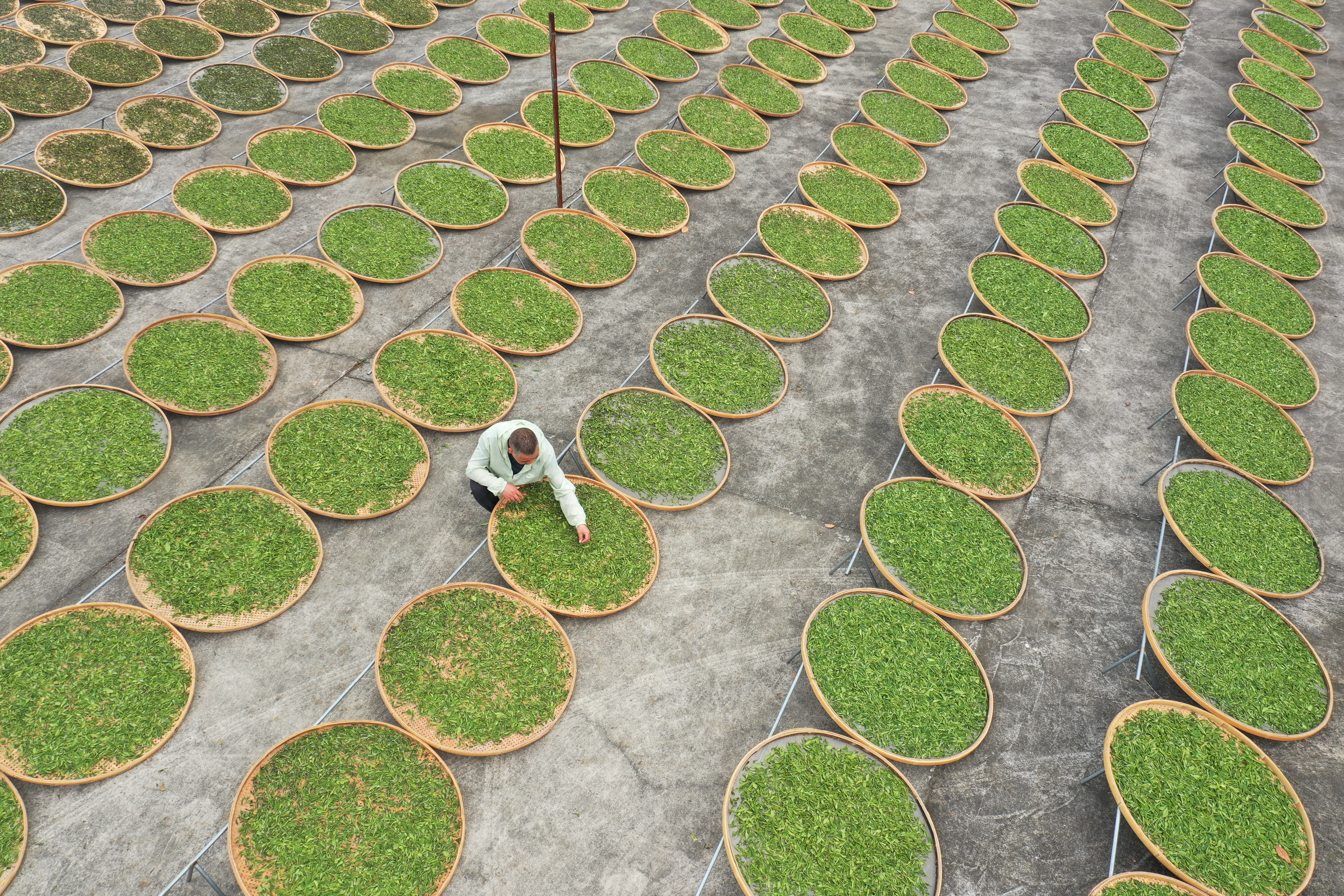Wang Yaping:China's First Female Spacewalker

Chinese astronaut Wang Yaping (C) talks with children during an event on the 2017 Global Space Exploration Conference in Beijing, capital of China, June 6, 2017. (PHOTO: XINHUA)
By Staff Reporters
Wang Yaping will become China's first female "taikonaut" to conduct multiple extravehicular activities (EVAs) outside the Tiangong space station during her stay there. Wang looked composed and confident when she greeted the crowds who came to wish her well on her space journey launch on October 14. She had previously captured headlines worldwide when China unveiled the three-member crew for the Shenzhou-13 space mission.
In China, while people are excited about the new mission, there is an extra amount of excitement because Wang will be the country's first female taikonaut to conduct spacewalks, inspiring millions of people who pursue their dreams, especially women.
Catherine Coleman, a retired NASA astronaut, who spent six months on the International Space Station from December 2010 to May 2011, sent Wang a video hoping that, "When you look out the window, and you see the stars and the Earth, billions of women will be looking out that window with you, including me."
This is Wang's second space mission. She was selected to the crew of the Shenzhou-10 space mission in April 2013, delivering China's first space lecture to an audience of more than 60 million schoolchildren and teachers whilst onboard the Tiangong-1 space lab module.
According to Pang Zhihao, a Beijing-based space expert and retired researcher from the China Academy of Space Technology, female taikonauts have many unique advantages over men during long-term space stays. They tend to have mental states that can support and endure long-term stays in space and are more sensible and considerate about any problems. Women's strong communication skills and energy will also help the crew maintain high morale throughout the stay, said Pang.
Women's bodies tend to adapt better to a space environment than men's and are less likely to have adverse reactions, making women more suitable for long-term trips in space, said Pang.
The advantages female astronauts have are also listed in an article published in National Geographic. Women are generally smaller and have weight advantages. In addition, women suffer less from some problematic physical effects of spaceflight. Some personality traits in women that suit long duration missions are also mentioned in the article.
Wang's mission also triggered netizens' curiosity about the particular supplies for a female astronaut,such as clothes, hygiene products and cosmetics, including lotion, cream and serum.
Pang Zhihao said that China has fully prepared for female astronauts' long-term stay on space stations. The waste collection system has been designed for females, and the Tianzhou-3 cargo craft has brought appropriate hygiene products to the space station.
In an interview with China Central Television, Wang said of her space adventures to date: "Dreams are like stars in the universe. They look far and unreachable, but as long as we try, we are destined to reach them."
(Source: the Global Times)

